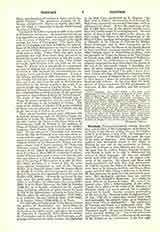

Toustain, CHARLES-FRANÇOIS, French Benedictine, and member of the Congregation of St-Maur, b. at Repas in the Diocese of Séez, France, October 13, 1700; d. at St-Denis, July 1, 1754. He belonged to a family of note. On July 20, 1718, he made the vows of the order at Jumièges. After finishing the philosophical and theological course at the Abbey of Fécamp he was sent to the monastery of Bonne-Nouvelle at Rouen to learn Hebrew and Greek. At the same time he studied Italian, English, German, and Dutch, in order to be able to understand the writers in these languages. He was not ordained priest until 1729 and then only at the express command of his superior. He always said Mass with much trepidation and only after long preparation. In 1730 he entered the Abbey of St-Ouen at Rouen, went later to St-Germain-des-Prés and Blancs-Manteaux, and died while taking a milk-cure at St-Denis. He had worn out his body by fasts and ascetic practices. His theological opinions were not entirely correct, as he inclined to Jansenism. As a scholar he made himself an honored name. He worked for twenty years with a fellow-member of the order, Tassin, on an edition of the works of St. Theodore of Studium which was never printed, for a publisher could not be found. Another common undertaking of the two is the “Nouveau traite de diplomatique” (6 vols., 1750-65) in which they treated more fully and thoroughly the subjects taken up in Mabillon’s great work “De re diplomatica”. The publication of Toustain and Tassin is of permanent value. The last four volumes were edited by Tassin alone after Toustain’s death. Of general interest among Toustain’s personal writings are: “La vérité persecutée par l’erreur” (2 vols., 1733), a collection of the writings of the Fathers on the persecutions of the first eight centuries; and “L’authorite des miracles dans l’eglise” (no date), in which he expounds the opinion of St. Augustine. Tassin testifies that he was zealous in his duties, modest, and sincerely religious.
KLEMENS LOFFLER

